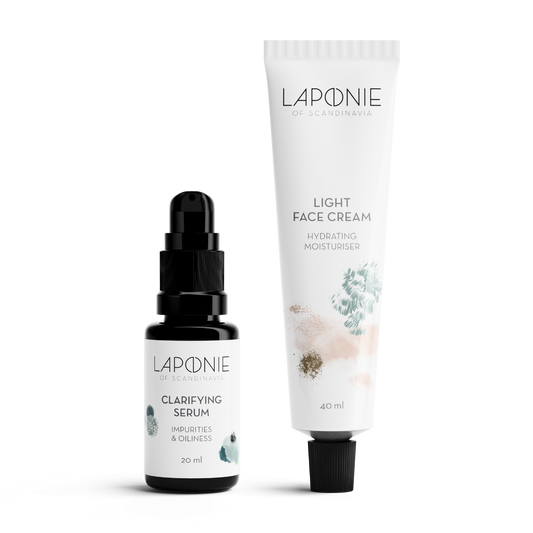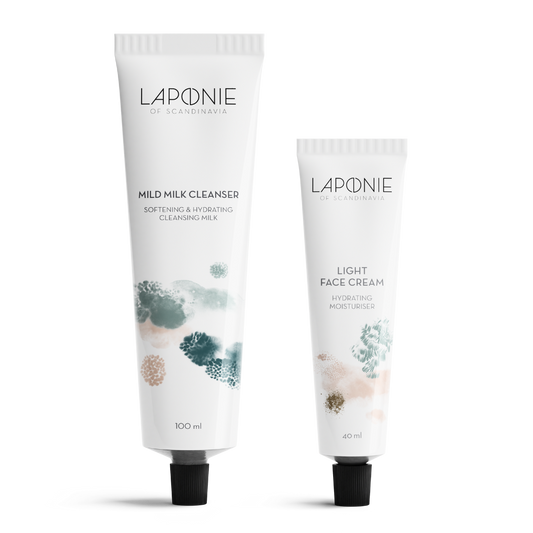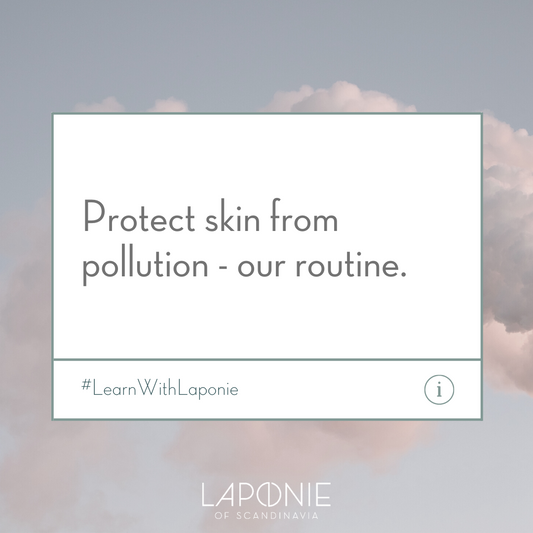As skin is one of the interfaces between our body and its surrounding environment, it's a major target for air pollutants. Each pollutant affects skin differently. The most usual effects are the propensity for skin dieases, signs of premature aging and pigmentation changes. In the second part of our blog series of three, we take a more thorough look at the different ways air pollutants can affect skin.
Weakened skin function and skin health
Air pollutants cause oxidative stress and inflammation by reacting with skins proteins, lipids, nucleic acid and DNA-molecules. The cause of oxidative stress is free radicals. Free radicals are constantly and naturally formed in living cells, but they are also caused by external factors. In small concentrations they are vital for the cells, because in balanced situation they work as mediators of cellular interaction. Pollutants in environment promote the forming of free radicals, which erodes skins own antioxidants.
Free radicals can react with other molecules, which can lead to a disruption of the skin barrier. This complicates the skins defence mechanisms against toxins, allergens, pathogens and UV-radiation. Inflammatory reaction increases the amount of inflammatory mediators, which greatly affects the biological functions of the cells. This leads to skin damage and the deterioration of the appearance of the skin.
Pre-mature aging
According to studies, exposure to air pollutants is connected to premature skin aging. Pollution exposure can cause disruption of the skin barrier, rashes and chapping. According to studies, long-term exposure to large quantities of environmental pollutants significantly contributes to the signs of aging in terms of changes in the structure and pigmentation of skin.
Atopic eczema
Exposure to air pollutants may cause or worsen skin diseases such as atopic eczema and psoriasis. According to several studies, air pollution is an essential risk factor in the onset of atopic eczema as well as in the worsening of chronic and inflammatory atopic eczema. Atopic eczema is significantly more common in urban than rural areas and according to studies, particularly the exposure to truck exhaust increases the occurrence of atopic eczema.
Acne
Exposure to air pollutants is also connected to acne. Pollution particles can clog pores and cause an anaerobic environment, which is ideal for the Propionibacterium Acnes -bacteria to thrive in. This bacteria is thought to be one of the main causes of acne. Pollutants also increase skin's sebum production, decrease the amount of vitamin E in skin, and promote inflammation, which weakens skin health.
Read more about anti-pollution and protecting skincare ingredients in the last part of our blog on air pollutants and their effect on skin here.
This article is based on a thesis produced for Laponie by Vilma Merikanto, a Bachelor of Beauty and Cosmetics an Laurea University of Applied Sciences.






